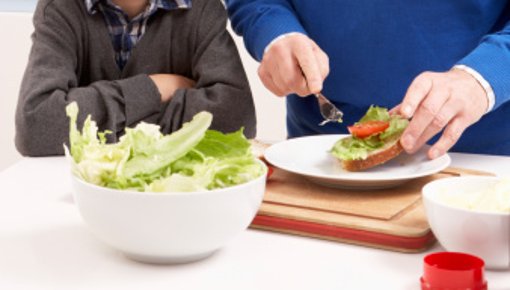I made some changes in my life
As well as taking medication, I also changed my diet and my lifestyle in general. Taking medication alone didn’t do the trick for me personally. I also changed the way I sleep: I now sleep on my left side, with the top end of my bed raised. This helps to manage the acid reflux a bit and I can sleep better that way.
I avoid alcohol and hot spices because they don’t agree with me. My wife takes this into account when cooking. She generally seasons our food less nowadays, and tends to use more herbs. And she steams things more. Fatty foods like fried potatoes are a problem for me. But I can’t always avoid them when we go out to eat.
I now eat very slowly and calmly, and only ever eat small portions because my stomach reacts badly to big portions. I no longer gulp food down. That’s something I’ve learned. It used to be different when I worked. Back then I was pressed for time and often ate very quickly. The food in our cafeteria wasn’t right for me either.
I generally have to be very careful about what I eat. If I do drink wine then I make sure it’s good quality wine. I completely avoid beer and other alcoholic drinks. I’ve had to adapt to my illness in this way.

